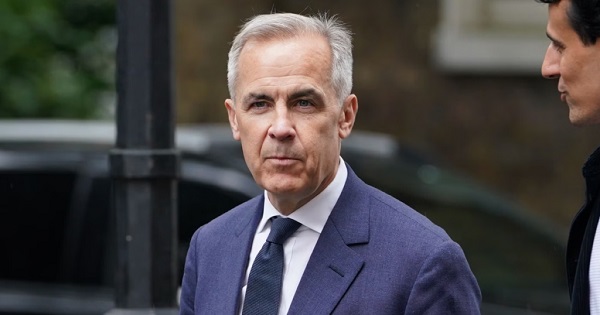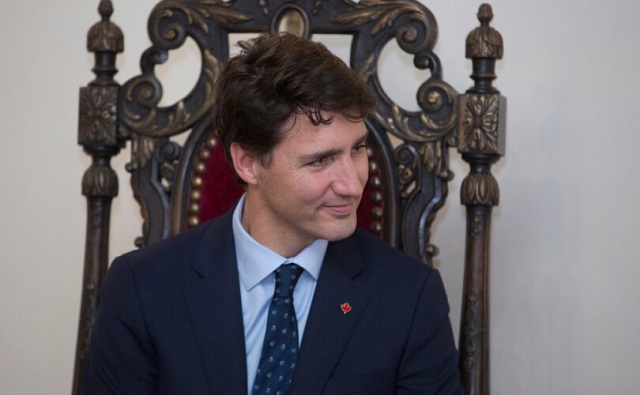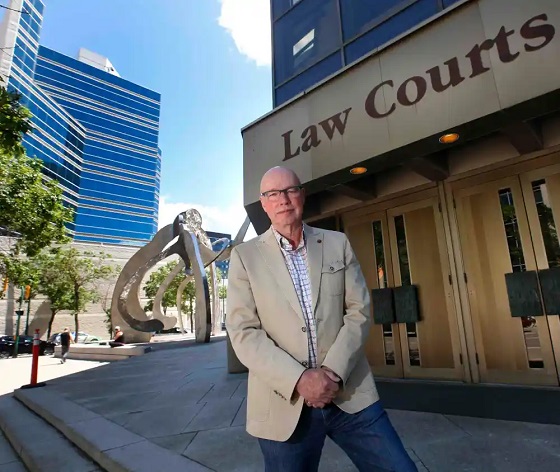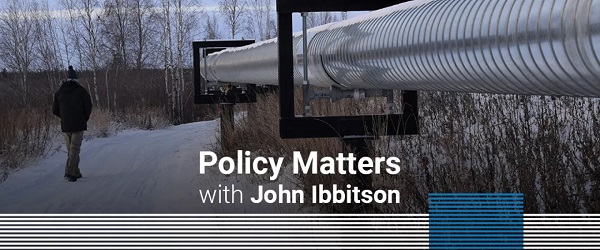News
Albertans Concerned About Interest Rate Hikes & Housing Bubble

A new survey released by MNP LTD finds that Albertans are concerned about the uncertainty of a potential housing bubble and impending interest rate hikes, adding financial stress to households already carrying a record level of debt.
Six in ten (61 per cent) of Albertans and nearly half (48 per cent) of Canadians homeowners are concerned about the impact rising interest rates will have on their finances. At the same time, more than half of Albertans (59 per cent) are worried about the potential impact that a decline in house prices might have on homeowners.
“So many are over-leveraged right now. Making matters worse, many are not making regular payments against the principal. With the financial stress of the downturn, and the threat of an increase in interest rates, many are going to find it even harder to make ends meet,” says Donna Carson, Licensed Insolvency Trustee at MNP LTD, a division of MNP LLP.
Nearly four in ten (39 per cent) homeowners in Alberta say that they will be faced with financial difficulties if the value of their home goes down, the highest proportion among other provinces. Even if home values don’t decline in the near future; three in ten Albertans (31 per cent) who have a mortgage agree that they are ‘in over their head’ with their current mortgage payments.
Homeowners aren’t the only ones concerned. Nearly eighty per cent of Albertans rate their ability to cope with a 1% interest rate increase as less than optimal. The vast majority of Albertans (83 per cent) would have difficulty absorbing an additional $130 per month in interest payments on debt.
“We’ve become far too comfortable paying only the minimum payments on our debts. It’s time to start assessing our ability to pay down those debts and ask ourselves if we can truly afford them if there is a rate change,” says Carson.
When asked about their personal debt situation, the majority of Albertans don’t feel optimistic. Nearly seven in ten (69 per cent) rated their debt situation as less than good, while sixteen per cent rated their situation as bad. On a scale of one to ten, from terrible to excellent, Albertans gave themselves an average rating of 6.
With nearly four in ten Albertans (38 per cent) finding themselves within $200 per month of financial insolvency, there is little wiggle room left to pay any unexpected bills or debts. If that amount is increased to $300 per month, a staggering forty-two per cent of Albertans would be on the verge of insolvency, with nearly one in four (22 per cent) not making enough to cover their bills and debt payments. Four in ten (42 per cent) say they are concerned about their current level of debt.
“Albertans should be bracing themselves for what’s ahead, especially those who already consider themselves to be in financial distress. Seek professional advice and start creating a realistic plan to deal with that debt,” says Carson.
Survey Highlights include:
- Three in ten Albertans with a mortgage agree they are ‘in over their head’ with their current mortgage payments
- Nearly four in ten homeowners in Alberta agree they will face financial difficulties if the value of their home goes down, six in ten Albertans think we’re in a housing bubble
- Six in ten Albertans agree they are concerned about the impact of rising interest rates
- Nearly eighty per cent of Albertans rate their ability to cope with a 1% interest rate increase as less than optimal
- Over a quarter (27%) of Canadians with a mortgage agree that they are ‘in over their head’ with their current mortgage payments. This includes more than one in three Quebecers (35%), followed by residents of BC (32%), Alberta (31%), Atlantic Canada (25%), Saskatchewan and Manitoba (23%), and Ontario (21%).
- Half of Canadians (51%) are concerned about the potential impact on home owners that a decrease in house prices might bring.
- Over forty (44%) of Canadians are within $200 of financial insolvency at the end of the month, down 8 points from March 2017, and 12 points from September 2016.
- Women are significantly more likely (48% women vs. 39% men) than men to be within $200 of insolvency at month-end.
- Gen X’ers are more likely (48%) to be within $200 of insolvency at month-end, compared to Millennials (43%) and Baby Boomers (40%).
- Half of Canadians (50%) are $300 per month away from being financially insolvent.
- Atlantic Canadians are the most likely to rate their personal debt situation as ‘bad’ – the highest in the country at 22%
- While two in three Canadians (67%) think we’re in a housing bubble, only a minority (43%) expect that bubble to burst through a decline in house prices in the next year. Half (51%) are concerned about the potential impact on home owners that such a decrease might bring.
International
Zelensky, not Trump, instigated Oval office clash

 MxM News
MxM News
Quick Hit:
Miranda Devine pushes back against claims that 47th President Donald Trump “ambushed” Ukrainian President Volodymyr Zelensky during their Oval Office meeting, arguing that it was Zelensky who provoked the confrontation. Devine contends that Trump was “cordial” and intent on brokering peace, while Zelensky entered the meeting “in bad faith,” contradicting and interrupting the president before ultimately derailing the negotiations.
Key Details:
-
Devine asserts that Zelensky was “negative from the start,” contradicting Trump within minutes and repeatedly interrupting him in an “insolent” manner.
-
Treasury Secretary Scott Bessent said Zelensky should have voiced concerns privately at a scheduled lunch instead of creating a public spectacle.
-
Trump’s detractors, according to Devine, are using this incident to fuel yet another “Russia hoax” in their ongoing attempts to discredit him.
Diving Deeper:
Miranda Devine, in her latest op-ed for the New York Post, refutes the mainstream media’s portrayal of 47th President Donald Trump’s recent Oval Office meeting with Ukrainian President Volodymyr Zelensky as an “ambush.” Instead, she argues, it was Zelensky who instigated the confrontation by entering the meeting with “negative body language” and a “hostile attitude.”
“Trump could not have been more cordial,” Devine writes, emphasizing that Trump had successfully navigated complex negotiations to bring both Russia and Ukraine to a moment where peace seemed possible. But Zelensky, she asserts, was determined to sabotage that effort.
From the outset, Zelensky took a defiant tone, directly contradicting Trump’s assertion that Europe had provided far less financial support to Ukraine than the U.S. “President Trump said that they made less support, but they are our friends,” Zelensky interjected, attempting to downplay Trump’s concerns. When Trump reiterated his position, Zelensky repeatedly interrupted with “No, no, no.” Despite Trump’s attempt to keep the exchange lighthearted, the tension in the room was palpable.
Treasury Secretary Scott Bessent later weighed in on the debacle, telling Fox News that “if Zelensky wanted to contradict Trump, the proper venue for that would have been 15 minutes later [at a private lunch].” Instead, Zelensky chose to grandstand before the press, leading to what Devine describes as the complete “blowing up” of the peace talks.
At the end of the meeting, Zelensky’s smirk and thumbs-up to someone off-camera left little doubt in Devine’s mind that he had orchestrated the confrontation deliberately. His ambassador, she noted, appeared distraught, watching the spectacle unfold “with her head in her hands.”
Devine sees a broader political game at play. She argues that the media and Trump’s political enemies have seized upon this incident to spin yet another “Russia hoax,” akin to the discredited Steele dossier, the first Trump impeachment over a call with Zelensky, and the “Laptop from Hell” censorship saga. “They could not tolerate that Trump… would be successful in ending the war,” Devine writes, suggesting that warmongers on both sides of the aisle needed this peace effort to fail.
Trump, for his part, did not let the moment pass without drawing a direct line to the Biden family’s corruption in Ukraine. He referenced Hunter Biden’s infamous laptop, telling Zelensky: “It came out of Hunter Biden‘s bathroom. It came out of Hunter Biden’s bedroom. It was disgusting. And then they said… the ‘laptop from hell’ was made by Russia. The 51 agents. The whole thing was a scam.”
Despite his provocations, Zelensky was met with Trump’s signature diplomatic coolness. When Zelensky dismissed the minerals deal, a key component of Trump’s proposed peace framework, Trump did not lash out. Even when Zelensky warned that “your American soldiers will fight” if Ukraine failed, a “severe provocation” as Devine puts it, Trump remained composed.
Only after an extended barrage of Zelensky’s interruptions and dismissive tone did Vice President JD Vance finally respond, stressing that “the path to peace and the path to prosperity is maybe engaging in diplomacy.” That set Zelensky off, leading Trump to finally push back. “We’re trying to solve a problem,” he told the Ukrainian leader. “Don’t tell us what we’re going to feel, because you’re in no position to dictate that.”
Now, with the negotiations shattered, the fate of Ukraine rests in Europe’s hands at an upcoming summit. “Ukraine can’t survive without America,” Devine warns, and Zelensky may soon realize that the stunt he pulled in the Oval Office cost him far more than he anticipated.
You can watch all 46 minutes of the February 28 meeting between Trump, Vance and Zelensky here.
Daily Caller
All Epstein Files Are In, Attorney General Reveals What Will Go Public Starting Thursday


From the Daily Caller News Foundation
By Hailey Gomez
If something’s redacted, you will know the line, and you will know why it’s redacted, the victim’s name, identifying information of a victim.
U.S. Attorney General Pam Bondi said Monday evening on Fox News that the thousands of withheld files on deceased pedophile Jeffrey Epstein are now in the hands of the FBI, adding certain redactions will be made, with an explanation provided for each one.
The Department of Justice released the first phase of “The Epstein Files” — an over 100-page document — on Thursday, but it failed to contain a majority of new information, sparking controversy online. On “Hannity,” Fox’s Sean Hannity addressed the controversy, asking Bondi for her response. She said she had been informed fewer than 24 hours before the release that “there were way more documents that they were supposed to turn over.”
“You’re looking at these documents going, ‘These aren’t all the Epstein files.’ There were flight logs, there were names, victims’ names, and we’re going, ‘Where’s the rest of the stuff?’ That’s what the FBI had turned over to us,” Bondi said. “So a source said, ‘Whoa, all this evidence is sitting in the Southern District of New York.’ So based on that, I gave them the deadline, Friday at 8, a truckload of evidence arrived.”
Dear Readers:
As a nonprofit, we are dependent on the generosity of our readers.
Please consider making a small donation of any amount here.
Thank you!
“It’s now in the possession of the FBI. Kash is going to get me, and himself really, a detailed report as to why all these documents and evidence had been withheld,” Bondi added. “We’re going to go through it, go through it as fast as we can, but go through it very cautiously to protect all the victims of Epstein, because there are a lot of victims.”
Before the release of “Phase One,” Bondi told Fox News last Wednesday that the DOJ would be releasing “some” of the files by Thursday, hoping the public would see “a lot of flight logs, a lot of names, a lot of information.” However, the DOJ and Trump administration faced pushback online after conservative influencers obtained a binder labeled “The Epstein Files: Phase 1.” Some of those influencers were seen smiling and holding it up outside the West Wing.
WATCH:
Hannity pressed Bondi about additional potential redactions in the files.
“National security, some grand jury information, which is always going to be confidential, but we’ll see. Let’s look through them as fast as we can. Get it out to the American people, because the American people have a right to know,” Bondi said. “Not only on that, but on Kennedy, on Martin Luther King, on all of these cases that the Biden administration has just sat on for all these years.”
“It’s really — it’s not sad. It’s infuriating that these people thought that they could sit on this information, but they can’t,” Bondi said. “And when we redact things, Sean, what we’re going to do is not just pull pages out like they used to do. If something’s redacted, you will know the line, and you will know why it’s redacted, the victim’s name, identifying information of a victim.”
Epstein was arrested and charged in 2019 with sex trafficking, only later to be found dead in his New York Metropolitan Correctional Center cell a month after his arrest. Since his death, Republicans, including Tennessee Sen. Marsha Blackburn, have called for the full, unredacted records of Epstein to be released to the public, which includes his infamous flight log.
After the release of phase one, Bondi requested that the FBI deliver the remaining documents to the DOJ by Friday at 8 a.m., tasking newly confirmed FBI Director Kash Patel with investigating “why the request for all documents was not followed.”
“We believe in transparency, and America has the right to know. The Biden administration sat on these documents. No one did anything with them. Why were they sitting in the Southern District of New York? I want a full report on that,” Bondi said.
“Sadly, these people don’t believe in transparency, but I think more, unfortunately, I think a lot of them don’t believe in honesty,” Bondi added. “It’s a new day. It’s a new administration, and everything’s going to come out to the public. The public has a right to know. Americans have a right to know.”
-

 Fraser Institute2 days ago
Fraser Institute2 days agoNew Prime Minister Carney’s Fiscal Math Doesn’t Add Up
-

 National2 days ago
National2 days agoNo enthusiasm, no movement—just media spin trying to sell a Liberal comeback that doesn’t exist
-

 Business2 days ago
Business2 days agoSec. of State Marco Rubio announces major overhaul at USAID, cancels 83% of programs
-

 International2 days ago
International2 days agoIs Russia at War With Ukraine, or With the West?
-

 Business2 days ago
Business2 days agoTime to unplug Ottawa’s EV sales mandates
-

 Business2 days ago
Business2 days agoCarney must scrap carbon tax immediately
-

 Business2 days ago
Business2 days agoBiden Admin Spent A Trillion Taxpayer Dollars To Embed DEI Across Government, Study Says
-

 Alberta22 hours ago
Alberta22 hours agoAlberta to unlock new market potential






